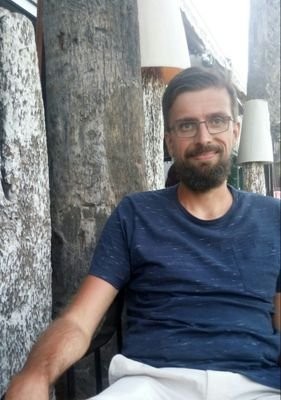Israel is expelling Derk Walters, the correspondent of a leading Dutch newspaper, after harassing him for months over the content of his reporting. The editor of the newspaper NRC Handelsblad….

Israel is expelling Derk Walters, the correspondent of a leading Dutch newspaper, after harassing him for months over the content of his reporting.
The editor of the newspaper NRC Handelsblad says the Israeli decision not to renew Walters’ visa is an attempt to obstruct free and critical news gathering about Israel.
Despite earlier promises, the Israeli Government Press Office this week informed NRC about its denial of a visa renewal for Walters, who will have to leave by early July.
The press office falls under the authority of Prime Minister Benjamin Netanyahu.
The Israeli “pressure” on its correspondent began in early 2016, NRC’s editor stated. It included repeated complaints by Ron Paz, the head of the foreign press department, over Walters’ reportage.
The Israelis had been upset about Walters reporting on abuses by Israeli occupation forces in the West Bank city of Hebron and tweets about the boycott, divestment and sanctions (BDS) movement.
In an email to Walters in January, Paz accused the Dutch journalist of a “hostile and biased description of the reality in Hebron.”
Paz reportedly told Walters that the Israeli embassy in the Netherlands had also complained about NRC’s coverage.
“Make them sweat”
Despite the record of harassment, the Government Press Office has strenuously denied any connection between the refusal to extend Walters’ visa and the content it had complained about.
But in internal press office correspondence obtained by NRC and the Tel Aviv newspaper Haaretz, Paz wrote to a colleague that he planned to “make the other side sweat.”
Israeli officials also claimed that Walters had not informed them of a change of address from Tel Aviv to occupied East Jerusalem, a further excuse to present the visa denial as being for bureaucratic and procedural reasons.
Dutch lawyer Herman Loonstein also meddled in NRC’s relationship with the Israeli press office.
The Electronic Intifada obtained a copy of a November 2016 letter to Israeli official Ron Paz. In the letter, Loonstein attests that NRC’s editor in chief Peter Vandermeersch is also a senior official with the company that owns the newspaper.
On this basis, the Israeli press office even tried last year to claim that NRC is not a recognized media organization because of the alleged conflict of interest between its commercial and editorial sides represented by Vandermeersch’s dual role. NRC Handelsblad was formed in 1970 from the merger of two newspapers founded in the first half of the 19th century.
But the Government Press Office dropped this attempt to delegitimize NRC after the Dutch embassy intervened.
The intervention by Loonstein aimed at curtailing NRC’s coverage of Israel’s actions indicates collusion between pro-Israel activists in the Netherlands and the Israeli government.
Loonstein operates under the banner of the Federated Jewish Netherlands, an outfit that has been described by the former head of Dutch Israel lobby group CIDI as a “one-man club.”
Even after the Israelis dropped their claim that NRC was not a valid news organization, Walters’ accreditation was still not renewed, with the excuse that he had not accepted an earlier offer of a three-month extension of his visa. But Walters could not accept such an offer while the Israeli government did not recognize NRC as a media organization.
Regrets
Despite the clear record of harassment and complaints about his coverage, Israeli officials insisted in a 4 April letter to NRC that “The nature of Mr. Walters’ publications from Israel was never a factor in our decision.”
NRC protested the denial of Walters’ visa extension to no avail. The Israeli press office says a successor may obtain a visa, but it is certain that NRC will remain under the surveillance of Israeli officials.
Dutch foreign minister Bert Koenders regrets Israel’s decision despite repeated interventions by Dutch officials with the Israeli authorities.
“Journalists have to be able to write what they want,” Koenders said. ” We advocate this all over the world, also to Israel.”
The expulsion of Walters fits a pattern of Israel jailing, obstructing and harassing journalists whose work displeases its government and military officials.
